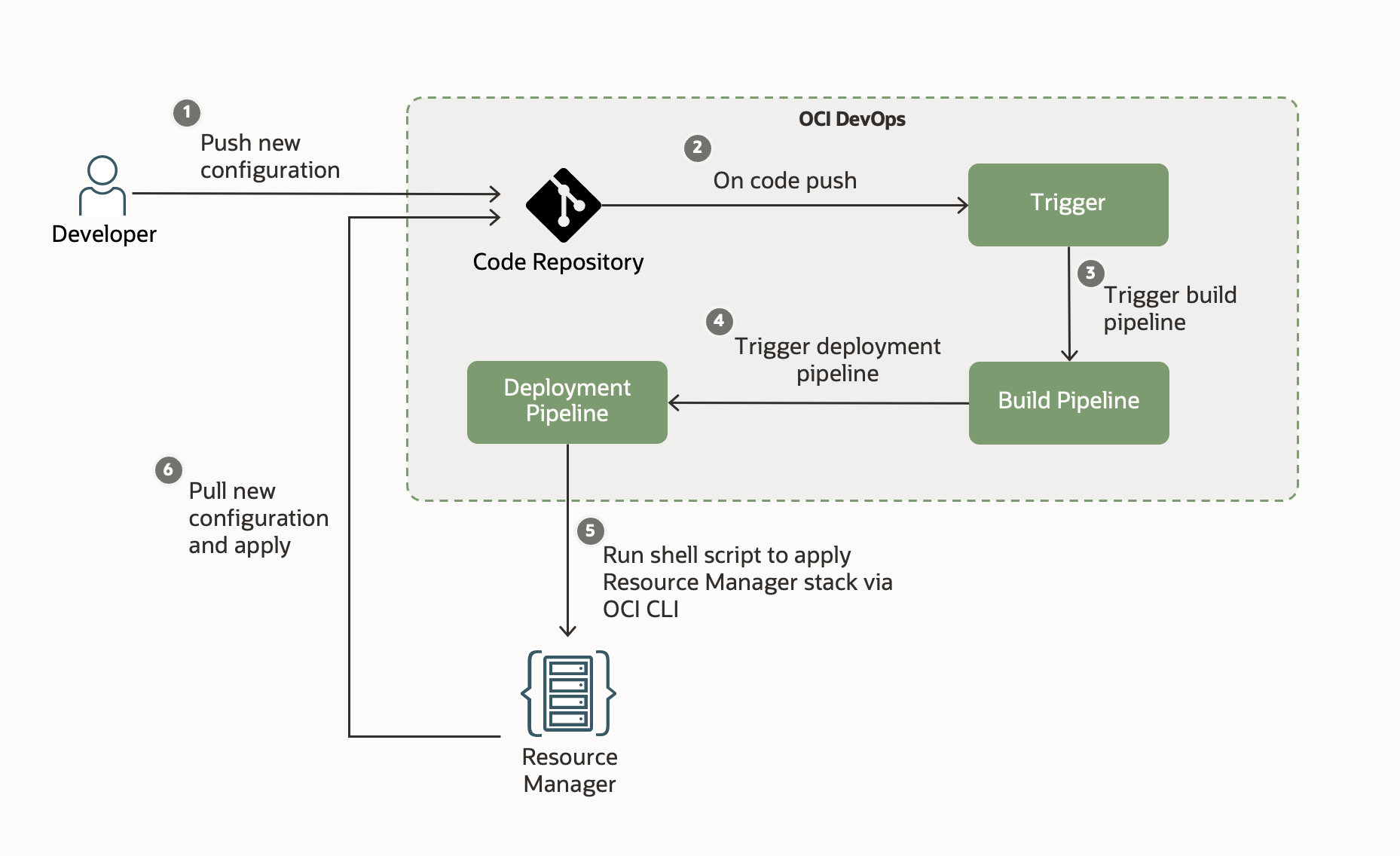Resource Manager is a fully managed service that helps teams manage and automate their Infrastructure as Code (IaC). It lets teams collaborate over the Terraform configuration, define permissions on various actions, provides state locking to prevent corruption, automatically stores all state files in persistent storage and takes care of configuring the Terraform provider. For the delivery and deployment of all software, not just Terraform, there is OCI DevOps, an end-to-end, continuous integration/continuous delivery (CI/CD) platform for developers with private code repositories, triggers, build and deploy pipelines, and more.
Resource Manager has built in automation for Terraform and integrations with multiple source code control systems to achieve basic CI/CD. This blog introduces a new tutorial which shows how to use OCI DevOps to expand upon these CI/CD capabilities by automatically redeploying Resource Manager stacks on Terraform code changes.
The Flow

Everything starts with a user pushing a new Terraform configuration to the code repository. When this happens the build and deployment pipelines are triggered, which results in the creation of a shell environment that uses the OCI CLI to apply the Resource Manager stack with the new configuration, thus deploying the new infrastructure. For a step-by-step tutorial to build and test this, see Use Oracle Cloud Infrastructure DevOps to Automate OCI Resource Manager Deployments.
What’s Next?
This is just one example of combining two OCI developer services together for an end-to-end automation deployment, but countless possibilities exist. You are encouraged to take the concepts learned in the tutorial and build upon them, tailor them to your use-case, and incorporate them into your existing CI/CD pipelines.
For more information, see the following resources:
